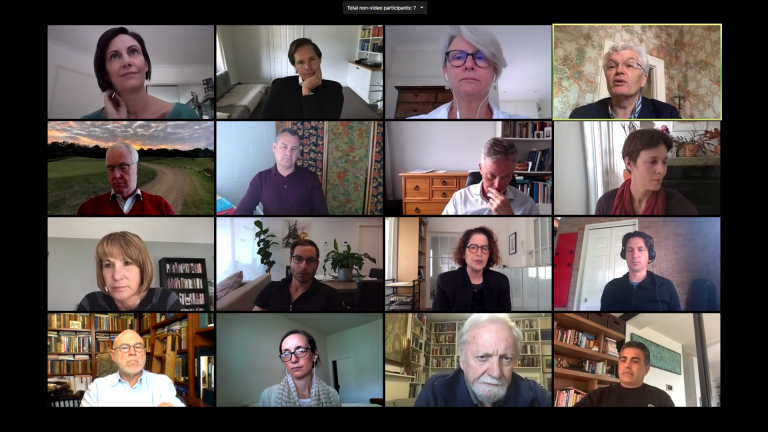The Victorian Government is again showing us the way in practical reform of federalism.
The community is not impressed by the cost and blame shifting between the Commonwealth and State governments, particularly in health and education. Time and time again, I have been told that it is all very well for the States or the Commonwealth to review their services in health, but the elephant in the room is the fragmentation and disagreement between the Commonwealth and the States. From my experience, the community is not particularly concerned about who delivers services provided that they are delivered effectively and efficiently. At the most general level, the community believes that the Commonwealth government should be responsible for national policies and national standards, but that services should be delivered wherever possible at the local level where the diverse needs of the community are best understood.
We have had too much posturing on this subject. Whether we are a centralist or a federalist, the fact is that there will be no serious improvement unless the commonwealth and the states can agree. If that agreement cannot be made by the Commonwealth and all the States (and territories) agreeing, then the sensible course is to proceed with cooperation and pooling of funds in those states where the Commonwealth and the particular State can agree — a coalition of the willing.
The Victorian Government has again made a timely intervention to chart a way through the Commonwealth/State log jamb. It commissioned the Allen Consulting Group to assess the ‘specific purpose payments’ (SPPs) of about $20b per annum which the Commonwealth makes to the States in education and health through Section 96 grants under the Constitution. See www.dpc.vic.gov.au/governmentsworkingtogether. The Allen report which has been released will be the subject of discussion at the Council of Australian Governments (COAG) on 14 July 2006. It calls for Australian Partnership Agreements between the Commonwealth and State governments.

Thanks to Alan Moir. |
The report approvingly quotes the National Commission of Audit ten years ago as follows:
Changes to the Commonwealth/State interface, given current revenue raising powers, should be guided by the following principles.
- Duplication and overlap should be eliminated, where possible, by one level of government taking full responsibility for related programs. This also minimises avenues for cost-shifting between governments. Otherwise resource pooling across levels of government, with agreements concerning program risk sharing, should be pursued.
- If the Commonwealth retains a broad standard setting role, it should confine its activity to that role and monitoring of such standards.
- As far as possible, service delivery should be devolved to the level of government closest to the ultimate clients to allow for diversity, unless national considerations are critical.
The (Audit) Commission recommends the following changes to Commonwealth/State funding.
- For programs which become the sole responsibility of the States, Commonwealth funding support should be through (general purpose payments).
- For joint Commonwealth/State programs, Commonwealth funding should go to pools financing all related programs.
The persistence of the Bracks Government in this matter is to be commended. Tired of being accused by the Commonwealth Government of being negative, the Victorian Government developed, again with the help of the Allen Consulting Group and an advisory panel, a plan in 2004 for the Commonwealth and State Governments to work more effectively together in health and education. (See ‘A Better Future — Options for Reform’, 18 January 2005). Unfortunately, at the request of the Federal Opposition, the report was buried before the 2004 Federal election. Apparently the Opposition didn’t like the proposals, particularly in education.
In my view, there is widespread agreement in the community about the changes necessary in education and health. This agreement is shared by the dedicated professionals working in these fields. The principle failure is a lack of political leadership. The Bracks Government is forcing the Commonwealth Government and fellow states to face up to the real issues.
The Centre for Policy Development has previously published several articles on the future of federalism. These include:
Lyn Allison, Federalism – Where is it headed? 25 January 2006
Bob McMullan MP, Federalism – Where is it headed? 14 December 2005
Lindsay Tanner MP, Abolish the States
Greg Barns, Co-operative Federalism, 30 November 2005



